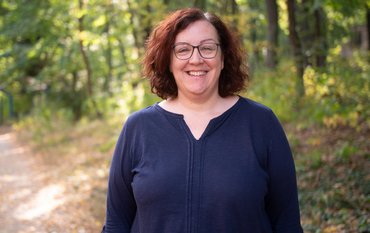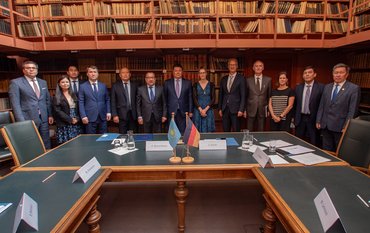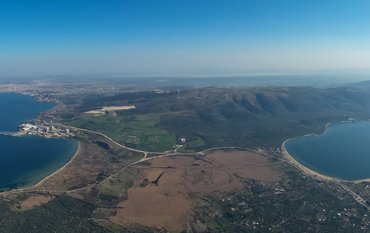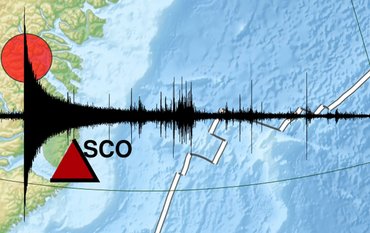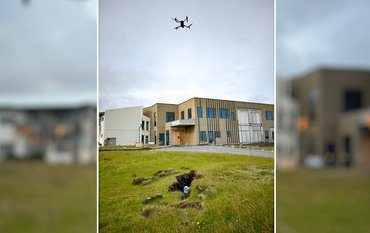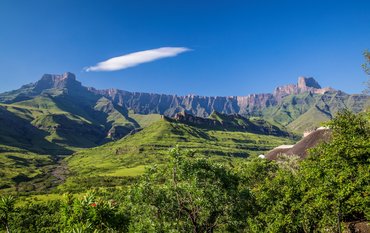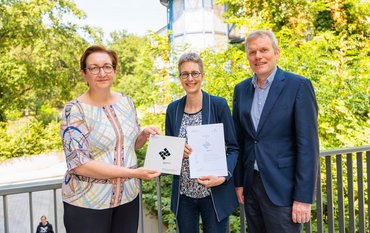Prof. Dr Charlotte Krawczyk has taken over again the position as Director of Department 2 “Geophysics” on 1 April 2024.
Between April 2022 and the end of March 2024, she left the post to take on the role of Programme Spokesperson for the joint research programme “Changing Earth – Sustaining our Future” of the seven research centres of the Helmholtz Research Field Earth and Environment for two years. This position has now been rotated to Colin Devey from GEOMAR Helmholtz Centre for Ocean Research Kiel. Lotte Krawczyk remains Programme Director for the GFZ.
Between April 2022 and March 2024, Prof. Dr Torsten Dahm, Head of Section 2.1 “Earthquake and Volcano Physics”, had taken over the position as Interim Director of the Geophysics Department.
Lotte Krawczyk heads Section 2.2 “Geophysical Imaging of the Subsurface”. Her research focuses on seismic methods and technical developments in applied geophysics, as well as geophysical imaging of deformation and mass transport. Applications include natural hazards such as volcanism and earthquakes and the utilisation of the (urban) subsurface.
She is also a member of the European Academy of Sciences (Academia Europaea), the National Academy of Science and Engineering (acatech), the Senate of the German Research Foundation (DFG) and she is Chair of the Federal Government's Expert Commission on Fracking.
Lotte Krawczyk came to the GFZ in 2016 from the Leibniz Institute for Applied Geophysics LIAG in Hanover, where she was Deputy Director. She has been a professor of applied geophysics specialising in seismology at TU Berlin since 2007.
Prof. Dr Michael Kühn has been Director of Department 3 “Geochemistry” since 1 March.
He succeeds Prof Dr Dirk Wagner, Head of Section 3.7 “Geomicrobiology”, who has held the position since 2020. The heads of the departments at the GFZ usually change every three years.
Michael Kühn also heads Section 3.4 “Fluid Systems Modelling”. The geochemist with a doctorate and habilitated hydrologist came to the GFZ in 2007 after holding positions at the TU Hamburg-Harburg, the CSIRO in Perth, Australia, and RWTH Aachen University, where he headed the Centre for CO2 Storage, among others. He has been Professor of Hydrogeology at the University of Potsdam since 2012 and had already been Director of the Department of Geochemistry between 2016 and 2020.
His research focuses on the investigation of geochemical rock-water interactions in the geological subsurface. Among other things, he uses coupled numerical simulation of geochemical reactions with other physical processes. Areas of application include the final disposal of radioactive waste, CO2 storage in geological formations, hydrogeothermal energy generation and the formation of ore deposits.
Until March 2024, Michael Kühn had been an expert for the National Monitoring Body (NBG) for four years. The NBG is supporting the ongoing process to find a site for a repository for high-level radioactive waste in Germany.


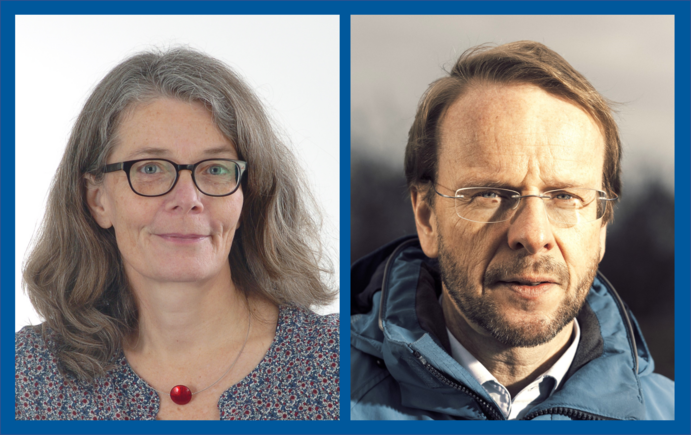


![[Translate to English:] [Translate to English:] Abror Gafurov von dem Schriftzug "Welcome to Azerbaijan" und den UN und COP Logos](/fileadmin/_processed_/2/5/csm_2024_11_Baku_COP29_Abror_Gafurov_1042faec82.jpeg)



![[Translate to English:] Martin Herold standing in front of the library on the Telegrafenberg](/fileadmin/_processed_/c/d/csm_Martin_Herold_d385ee4dd9.jpeg)
![[Translate to English:] Many people are listening to a presentation in the GFZ lecture hall.](/fileadmin/_processed_/c/a/csm_1_Bild1_hell_b9c0e9f5ed.jpeg)





![[Translate to English:] Both scientists sitting on stools in front of a wall of books in the Telegrafenberg library](/fileadmin/_processed_/6/6/csm_Buiter_Castell_DORA_4_e87cb1ea18.jpeg)
![[Translate to English:] Gruppenbild mit 4 Personen](/fileadmin/_processed_/8/d/csm_20241017_GFZ-Emmerman-Medal-005_web_reinhardtundsommer_21a414fa4a.jpeg)






![[Translate to English:] Ice landscape with five red tents](/fileadmin/_processed_/8/9/csm_Zeltlager_auf_dem_Eis_Urheberin_Jenine_McCutcheon_5ced2d523b.jpeg)


